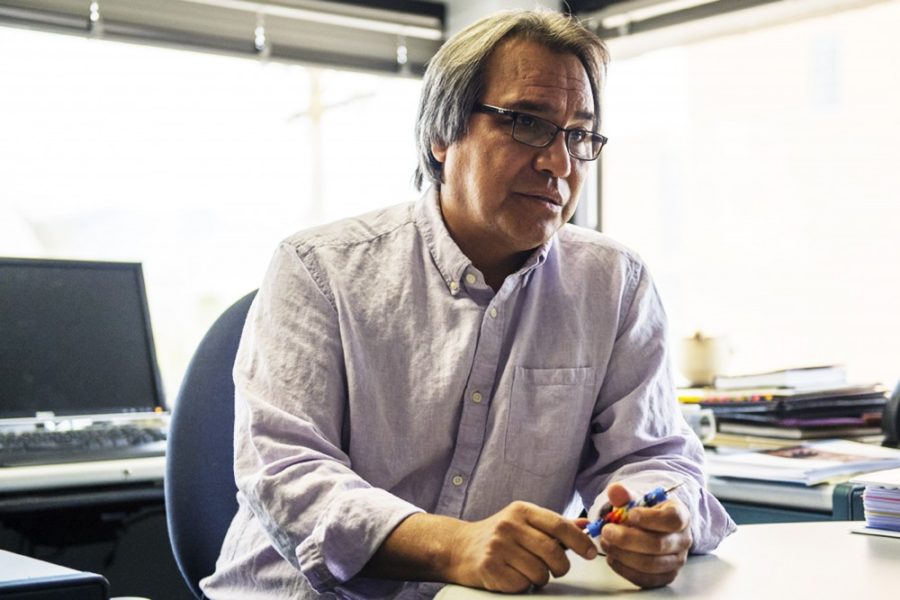A UA law professor’s recent efforts working toward improving human rights for indigenous people has earned him a nomination for a Nobel Peace Prize.
James Anaya juggles a full workload of teaching law courses, doing research and field work and working with students to discuss human rights issues. Anaya runs a workshop for students called the International Human Rights Advocacy Workshop where he talks about rights issues in the indigenous community.
Mackenzie Richardson, a second-year law student, is one of the few law students currently participating in this semester’s workshop.
“It’s an honor to be working with professor Anaya in this workshop,” Richardson said. “He is such a highly regarded official and expert in the human rights of indigenous people.”
Anaya has been a Special Rapporteur for the United Nations Human Rights Council since 2008, and his most recent term was renewed in 2011.
With Anaya’s term ending in April, Richardson said she took this semester’s workshop as a last-chance opportunity to gain knowledge and practical experience with issues occurring today.
“This isn’t the textbook case studying the past,” Richardson said. “This workshop gives us insight into the real world rather than theoretical issues from the past.”
Anaya’s latest project consists of looking at controversies such as mining, oil and gas development in indigenous territories in Peru and writing a report on the possible effects that the controversy will have in those areas.
Currently, Anaya is making recommendations to the Peruvian government on possible solutions to a pollution problem in Peru that stems from oil development.
Anaya’s students are working with him in finding solutions for this problem by compiling research and memos. The group is consulting with the indigenous people of the area and is looking at how the oil expansion will affect them. They are also making sure the oil company is providing preventative risk tactics and medication for projected risks.
Anaya said working with indigenous people will help students learn more about the country’s culture as a whole.
“The educational system needs to be better in tune with the cultural landscape across the board as it concerns all the different components of the cultural mosaic of the country,” he said.
Another issue Anaya works to advocate in the U.S. is a greater awareness of contributions made by Native people through education.
“Indigenous peoples and histories, their conditions and their contributions, need to be featured in our educational system in ways that they’re not today,” Anaya said.









